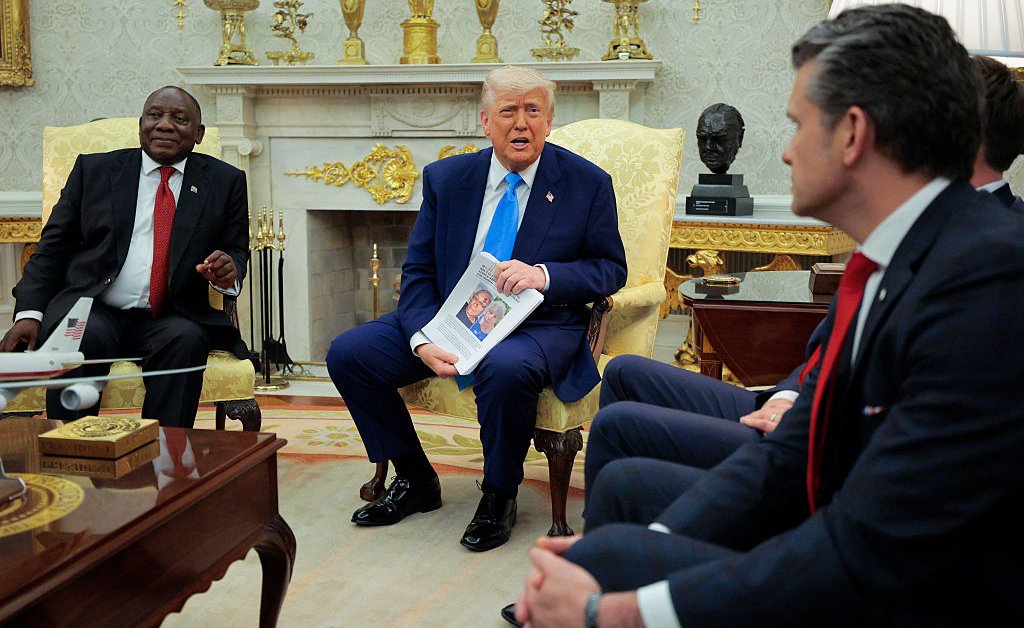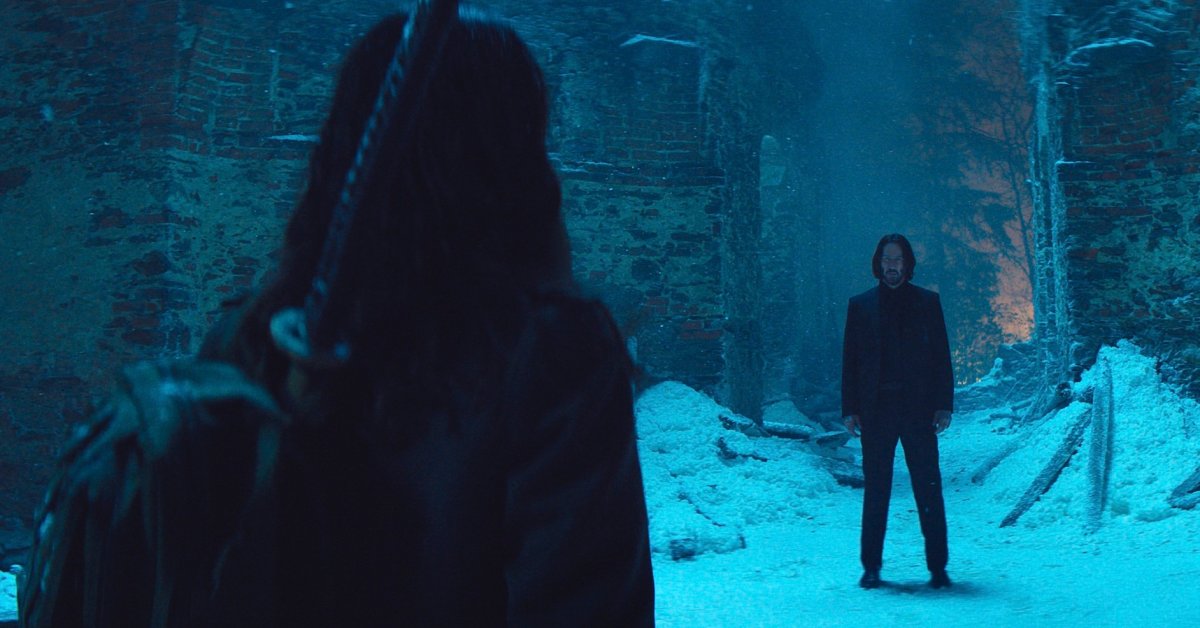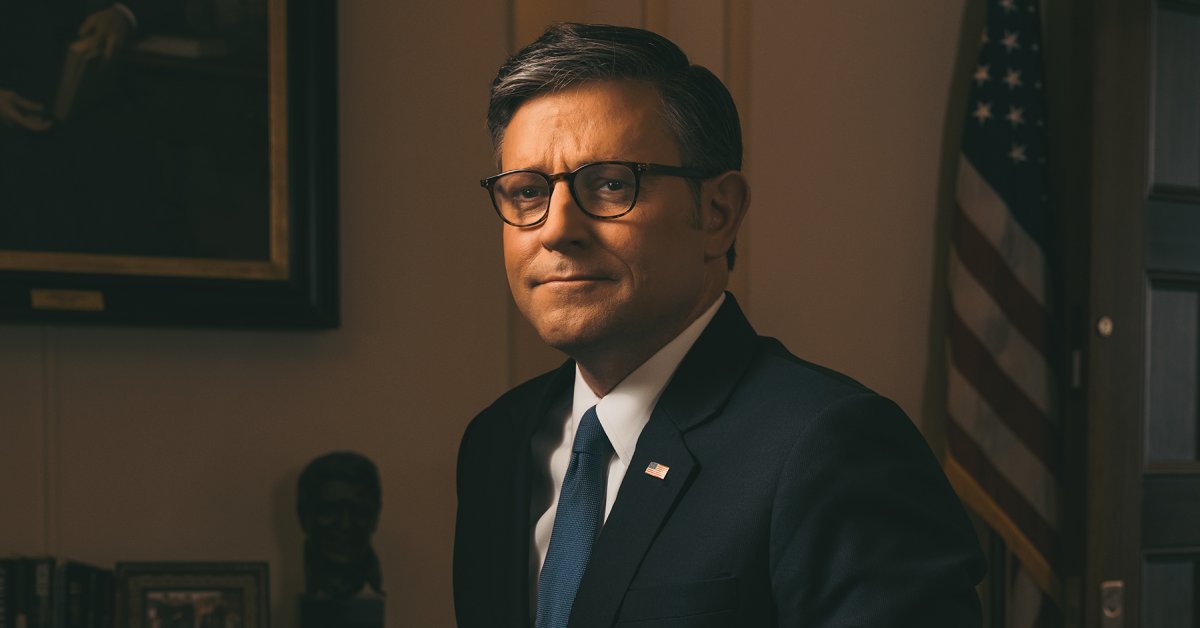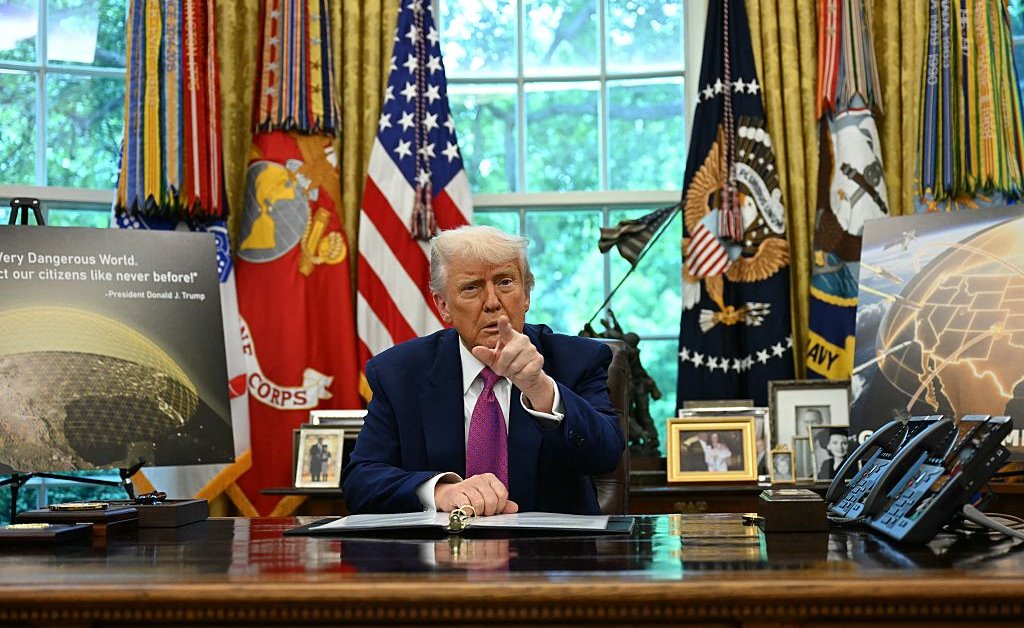Last Monday, 49 white South Africans landed at Dulles airport in Washington D.C. They arrived under President Donald Trump’s newly created refugee pathway, aimed squarely at white Afrikaner farmers claiming racial “persecution.”
Afrikaners—descendants of Dutch settlers of South Africa—have long painted themselves as victims of “reverse racism” and even “genocide” in post-apartheid South Africa. Trump amplified these baseless claims in 2018, tweeting about the “killing of [white] farmers” in South Africa.
In a recent press conference at the White House with South African president Cyril Ramaphosa, Trump repeated some Afrikaners’ claims to be undergoing a “genocide”—a far-right conspiracy with no grounding in fact. Murder rates are high in South Africa; the vast majority of victims are Black.
Trump’s welcoming of Afrikaners as refugees can be understood as the latest chapter in a longer history of U.S. support for white Afrikaners. When Afrikaner apartheid was instituted in 1948, Washington didn’t flinch. Instead, the Truman Administration embraced the white regime in South Africa as a Cold War ally: anti-communist, rich in uranium (essential for U.S. nuclear weapons), and staunchly white supremacist.
During the 1950s and ’60s, as African nations gained independence and cast off colonial rule, U.S. leaders grew anxious. Would these new nations fall into the Soviet orbit? In this context, apartheid South Africa became a dependable partner, ideologically aligned and vocally anti-communist.
Read More: Why Trump and South Africa Are at Odds
American officials were not shy about their racial biases. According to archival documents from the 432nd meeting of the National Security Council in 1959, then-Vice President Richard Nixon dismissed Black African leaders as “down from the trees 50 years ago.” And the U.S. intelligence community grew increasingly close to their South African counterparts, sharing intelligence, strategy, and a belief in the righteousness of white rule.
The CIA’s role in the 1962 capture of Nelson Mandela remains one of the clearest examples of this alliance between the U.S. and Afrikaner white supremacists. South African security police received a tip-off from the CIA, leading to Mandela’s arrest and 27-year imprisonment. Washington saw Mandela not as a freedom fighter, but as a dangerous radical whose African National Congress (ANC) had links to Moscow.
This wasn’t just a matter of realpolitik. It was also personal. Millard Shirley, senior CIA officer South Africa in the 1960s and ’70s, developed such affection for the apartheid regime that he retired in South Africa, spending his post-agency years golfing there.
Alongside his time on the golf course, Shirley also wrote spy manuals for the apartheid government’s notorious intelligence agency, B.O.S.S. Shirley’s mentorship helped South African operatives target, detain, and eliminate anti-apartheid activists. His legacy—and that of the CIA in South Africa—is written in surveillance files, detention cells, and mass graves.
My archival research makes clear: the U.S.-Afrikaner bond was not just about opposing communism. And archival documents suggest that the CIA historically shared white Afrikaner racist sentiments. Henry Kissinger’s biographer (Kissinger was National Security Advisor under Nixon) recalls Kissinger describing the racial animus of CIA intelligence briefs on South Africa in the 1960s as “transparently pro-white [and] disdainful of black African opposition.”
Even as global condemnation of apartheid grew, Washington remained reluctant to sever ties with the regime, finding ways to dodge a UN embargo on sending arms to South Africa. “These people will be on our side when the chips are down,” said a U.S. diplomat reflecting on his time in South Africa in the 1960s.
But not all Americans complied. Civil rights activists in the U.S. saw in South Africa parallels to U.S. culture and policies—from Jim Crow at home and apartheid abroad. Demonstrations, sit-ins, and university divestment campaigns targeted America’s complicity.
After the 1960 Sharpeville massacre—where South African police opened fire on peaceful protesters and killed dozens of citizens, many of whom were children—the gap between U.S. government policy and public conscience became impossible to ignore.
By the 1980s, pressure from churches, student groups, and civil rights leaders forced the issue. But President Ronald Reagan still refused to sever ties. South Africa remained a Cold War ally and a lucrative destination for U.S. investment. “How can we abandon a country that is strategically essential to the free world?” Reagan asked critics.
In 1986, Congress finally overrode Reagan’s “constructive engagement” policy with South Africa. Countermanding a presidential veto, Congress voted to place sanctions against South Africa as long as apartheid lasted.
Desmond Tutu, a South African bishop and moral conscience of the anti-apartheid struggle, had this to say about Reagan’s veto of sanctions against South Africa: “Reagan gives the ritual verbal condemnation of apartheid…but refuses to take action against one of the most vicious policies the world has known. President Reagan will be judged harshly by history.”
Read More: What to Know About Escalating U.S.-South Africa Tensions After Trump’s White House Meeting With Ramaphosa
After the Cold War ended, there was a brief pivot on the part of successive U.S. administrations. With communism no longer cited as the major threat, U.S. policymakers finally welcomed Mandela and supported democratic reforms in South Africa, even though he had previously been branded a terrorist in the United States.
But today’s “white refugee” program for Afrikaners revives the logic of the old Cold War alliance, when U.S. presidents from Truman to Reagan viewed white nationalists as allies against Black communists. Now, they may be allies in Trump’s war on “woke” liberals.
Elon Musk, born a white South African himself, and one of Trump’s most prominent supporters, has echoed these narratives, accusing his home country of passing “racist ownership laws.”
The South African government has strongly rejected these allegations, and most within the country and from across the political spectrum, view them as disingenuous at best.
Too often, commentators portray Trump as an aberration in American history. But Trump didn’t begin this alliance. He merely peeled away the diplomatic niceties that once masked it.
Joel Cabrita is Professor of African History at Stanford University; she is currently writing a history of the CIA in South Africa and globally.
Made by History takes readers beyond the headlines with articles written and edited by professional historians. Learn more about Made by History at TIME here. Opinions expressed do not necessarily reflect the views of TIME editors.








